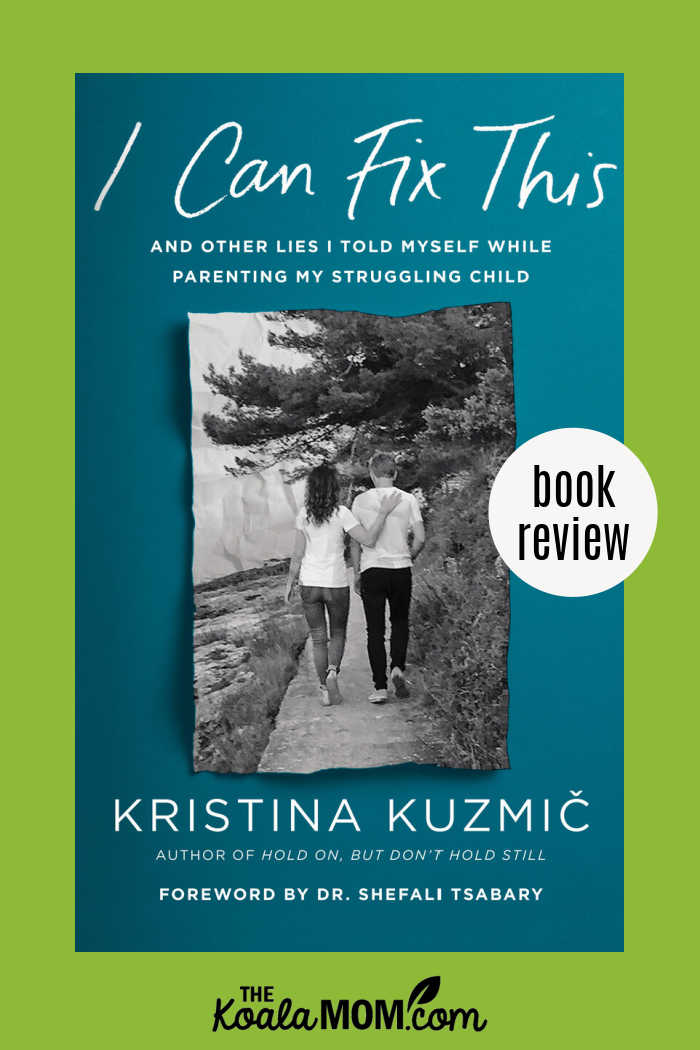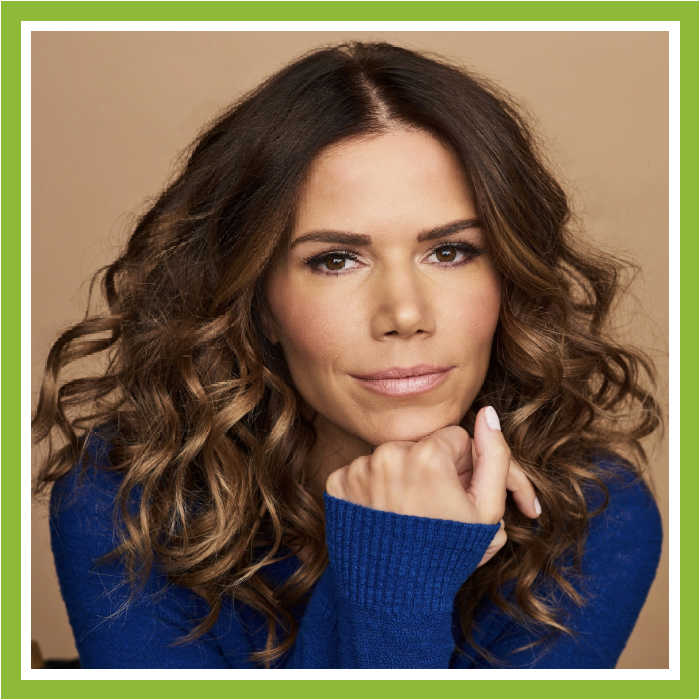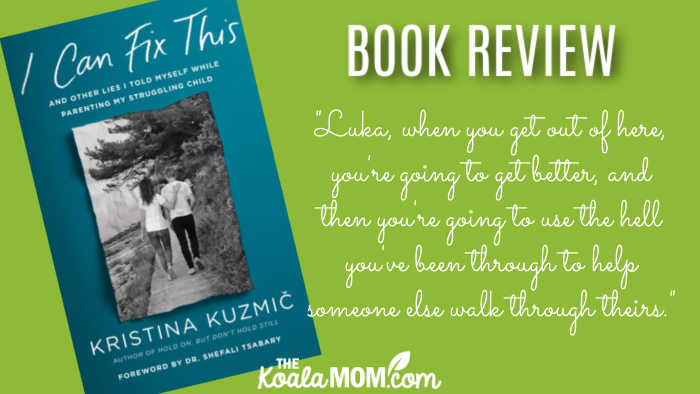Kristina Kuzmic has won the hearts of parents everywhere with her real, humorous videos about life and parenting. I’ve often laughed at and shared her reels and memes, and when I became a single mom, as she was for many years, her videos had a more personal connection for me. I Can Fix This and other lies I told myself while parenting my struggling child caught my attention at the library recently. With her typical straight-shooting honesty and twist of humor, Kuzmic invites readers into her attempts to help her son with his mental illness.

This post contains affiliate links; as an Amazon associate, I earn from qualifying purchases.
The Lies We Tell Ourselves
Each chapter begins with a lie that Kristina had to confront. I can fix this. I am in control. It’s all my fault. Progress is a straight line. As Kristina walks us through her story, from Luka’s happy childhood to his depression and addiction and back to healing for their entire family, she unpacks how these lies affected her life. She’s honest with the mistakes she makes in her attempts to help Luka in his darkest days.
For anyone who hasn’t dealt with depression, it can be hard to understand what Luka went through. Even Kristina, who knew her son better than anyone else, was an outsider to her son’s battle, watching his symptoms without always knowing what caused them. Some of the things Kristina shared hit close to home for me, because I’ve struggled with moderate depression. I also saw myself in her attempts to “fix” her child and do everything she could to make life better for Luka.
While she’s doing everything she can to support Luka, Kristina also talks about her own need for support, and the women who met that need. There were times when she needed to lean on others, to take a break, to celebrate her own birthday, so she could show up better for her son. Early in her story, her best friend came to sit with her on a particularly hard night: “We humans often think we need to do something big in order to help, to give support, to show we care. The wanting to do something big stops us from doing something small. Sometimes the greatest gift we can give someone is just to sit them.”
Later in the story, as Luka does begin to have some progress in his battle, Kuzmic is surprised to find herself struggling. She sees her own therapist and has to confront how hard it is to give herself the same level of care she’s given Luka for so many years:
We applaud people for putting others’ needs above their own. Why can’t I care about my son’s needs and my needs with equal passion? Why does one have to take precedence over the other? Does everything in the world have to be a comparison, a competition? It’s obvious I’m capable to caring deeply for more than one human. I have three children. I care for all of them equally. But somehow if I care about myself as much as I care about my children, it’s looked down upon.

Finding Hope in the Struggle
None of us wants to face struggles and suffering. Especially for Christians, it’s hard to understand why God would allow so much hardship and pain in our lives. In her story, Kristina shared one answer that I’ve come back to again and again in my own pain: “Luka, when you get out of here, you’re going to get better, and then you’re going to use the hell you’ve been through to help someone else walk through theirs.”
What I desperately need right now is a story with a beginning, a middle and a happy ending. I want the movie version of this ordeal. Luka deserves to get better because that’s what’s supposed to happen. I want the version where he went through a very hard time, he struggled, we hit some terrifying moments, and then things started to fall into place, and now we get to experience a resolution. Healing wins. Credits roll.
That’s not what happens, although that’s what we all wish for (and have maybe come to expect in our own lives, thanks to Hollywood). The truth is that life is messy and healing is a journey that takes time. What ultimately helps Luka the most is his support groups: walking through depression with other people who’ve been there, done that, and understand him. And in my own journey, I’ve found the same comfort in both being seen and heard by others who know what I’ve been through, and in reaching back to help those who are now going through what I went through:
Being around people with similar struggles to his, Luka no longer sees himself as different. He is validated. There is a constant reassurance that says, “Oh, you feel that? Yeah, me too.”
Kristina shares her desperation during the dark days of her son’s depression, all the research she put into finding answers for him, all the doors she knocked on to get help. I know that feeling too. And while Kristina gives readers hope, she also shares that healing requires a lot of work. There was no one magic answer that cured Luka’s depression. “Healing doesn’t happen in isolation. Healing requires vulnerability. Healing requires authenticity. Healing requires discomfort. Healing requires community.”
Luka’s Point of View
The last chapter in I Can Fix This is written by Luka. While I could see Kristina was keeping her writing focused on herself, and had Luka’s permission to share his story, I really appreciated his perspective. Luka gives a bigger picture overview of what his depression was like for him and where he’s at now. He also thanks his mom for all the love she poured into his life:
I can see how important it was that my mom didn’t give up on saying supportive things to me. Even when I acted like I didn’t care or I ignored her, I still heard her. A lot of the times it’s the person struggling who has to initiate reaching out. They have to want the help. But they won’t reach out unless you set that space where they feel safe and know that they can come to you at any time.

Who Should Read I Can Fix This?
Every parent should read I Can Fix This. While few of us will walk through depression at this level with our children, what Kristina learned the hard way can help all of us parent our children better. What Kristina shares about parenting, self-care, the lies we believe, community and more are applicable to everyone’s life. My situation has not been the same as Kristina’s (although we have a few things in common), but I still gleaned so much from her story and want to reread it again soon.

No Responses Yet